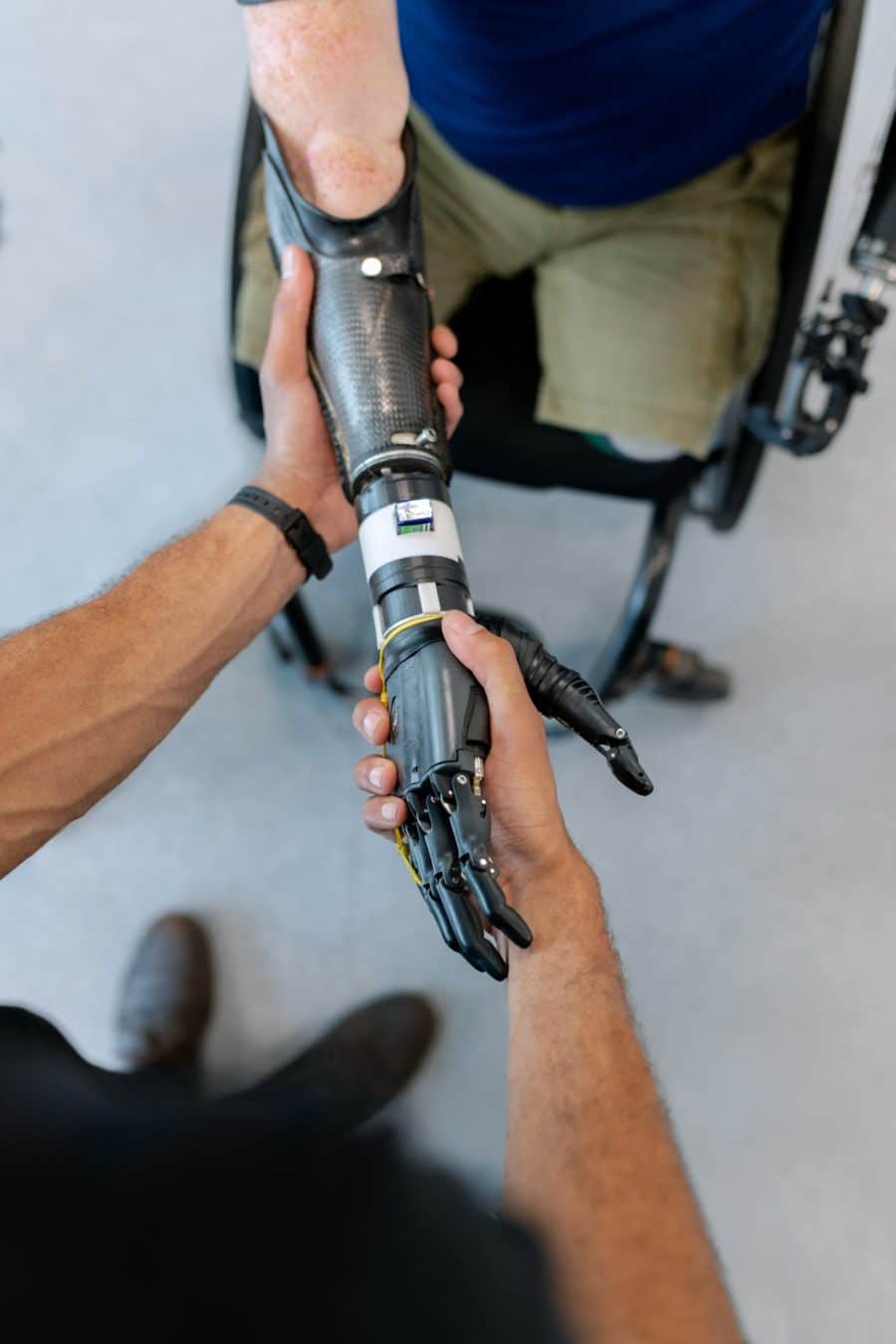The average Physiotherapist’s salary in Nigeria is over a million naira. One of the motivations for doing our jobs is the pay that comes with it, whether we like it or not. A physiotherapist can earn well over five million naira depending on his/her educational qualification, place of work, and experience of practice.
Quick Facts About a Physiotherapist
A physiotherapist is an important professional in the health care system that help with handling convalescing patients. His role is to give patients physical therapy to heal their symptoms, injuries, or side effects of their treatment or surgery.
In this article, you will understand who a physiotherapist is, their role in the healthcare industry, how to become a professional physiotherapist, and what a physiotherapist’s salary in Nigeria is.
Who is a Physiotherapist?
A physiotherapist is a professional that practices physiotherapy. Physiotherapy is the health care profession that practices the use of physical approach to promote, maintain, and restore human functions (physical, psychological, and social) and movement while considering health status of different individuals to be practiced on.
Physiotherapy aims at improving how individuals perform their physical functions such as movement that has been impaired due to certain instances such as accident, surgery, or cerebral diseases. It achieves this by employing exercises, manual manipulation such as massage or the use of mechanical and assistive devices such as traction and prostheses to help the patients.

A physiotherapist is the professional that help individuals who have challenge using their moveable body parts as they used to by designing a rehabilitation programme for them, treating their physical movement limitations, and helping them improve their psychological ability to help them regain what they’ve lost.
They work with people of different ages and profile. Therefore, they design these treatments and rehabilitation programmes based on different individual’s needs and capabilities. They can work alone or in collaboration with other health care professionals.
Physiotherapists go by different names – physical therapists, kinesiotherapists – all of which are acceptable.
Where do Physiotherapists Work?

As expected, they work in hospitals, collaborating with other health care professionals to help them regain use of neuromuscular, cardiovascular, or respiratory parts of their body that needs to be rehabilitated. However, they are also found in private practice where patients are referred to them by doctors or patients go to them directly.
Physiotherapists also work in big sport clubs – to help athletes recover from injuries and help them avoid them.
Specialization in Physiotherapy
Physiotherapy is broad, and therefore, most professionals specialize in certain areas where they feel they can excellently provide their services to patients that need them. Some of the specializations in physiotherapy include:
- Cardiopulmonary
- Paediatrics
- Oncology
- Sports Medicine
- Orthopaedics
- Older People / Geriatrics
- Extended Scope
- Women’s Health
- Rheumatology
- Public Health
How to Become a Physiotherapist in Nigeria?
If you’re interested in becoming a physiotherapist in Nigeria because of the salary, you need to have a rethink because there’s more that you need to know before you get attracted by the average physiotherapist’s salary.
The first step to being a physiotherapist in Nigeria is attending a university that awards degree in physiotherapy. There are many universities in Nigeria that offer physiotherapy as a course in Nigeria today. All you need is to have the academic requirement for admission into the tertiary institutions to study physiotherapy or physical therapy.
As a general rule, you need to possess at least credit level passes in English Language, Mathematics, Biology, Physics, Chemistry, and Biology, in your West African Senior School Certificate Examination (WASSCE) or NECO.
UTME requirement include a subject combination of English Language, Physics, Chemistry, and Biology. On passing this examination, you will be faced with scaling through your preferred institution’s examination (POST-UME) or screening.
Once accepted as a student in any of the universities offering physiotherapy as a course in Nigeria, you are expected to spend 5 academic years in the university to earn your degree in physiotherapy. Afterwards you can proceed to study postgraduate courses to earn your Master’s and Doctorate degrees.
It is essential to note that you will not be considered a professional physiotherapist until you are registered as one under the Nigeria Society of Physiotherapy. Only then can you earn the average physiotherapist’s salary in Nigeria.
Average Physiotherapist’s Salary in Nigeria
The average physiotherapist’s salary in Nigeria is encouraging, compared to other professions. The average physiotherapist has undergone at least 10 years of practice in hospitals – both government-owned and private – and has accrued some level of experience, not to mention the academic qualification which must have been at least a Master’s Degree in Physiotherapy.
The need for physiotherapists in Nigeria is high and there are few universities that offer the course, it is therefore, a course that produces professionals that are needed. Due to its demand, the average salary for a physiotherapist is high.
It would interest you to know that beginner physiotherapists earn as little as 100,000 NGN and as high as 400,000 NGN. Also, physiotherapists who have gathered experience and more educational qualifications earn about 2,000,000 NGN per year, that is about 165,000 NGN per month.
Generally, the more your years of experience and academic qualification, the more your pay is.
Conclusion
Physiotherapy is not a very popular course of study in Nigeria and only few universities offer it. However, the average physiotherapist’s salary is mouth-watering and can attract anyone to want to be in that line of profession but caution is important as the academic requirement to achieving that has to be put into consideration.
Despite that, physiotherapy should be a course to look into as its demand keeps growing.



